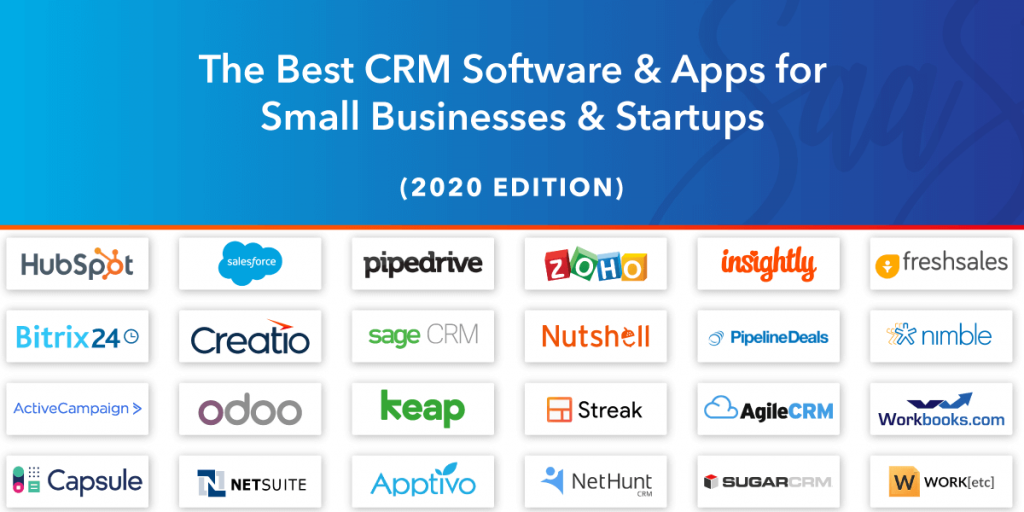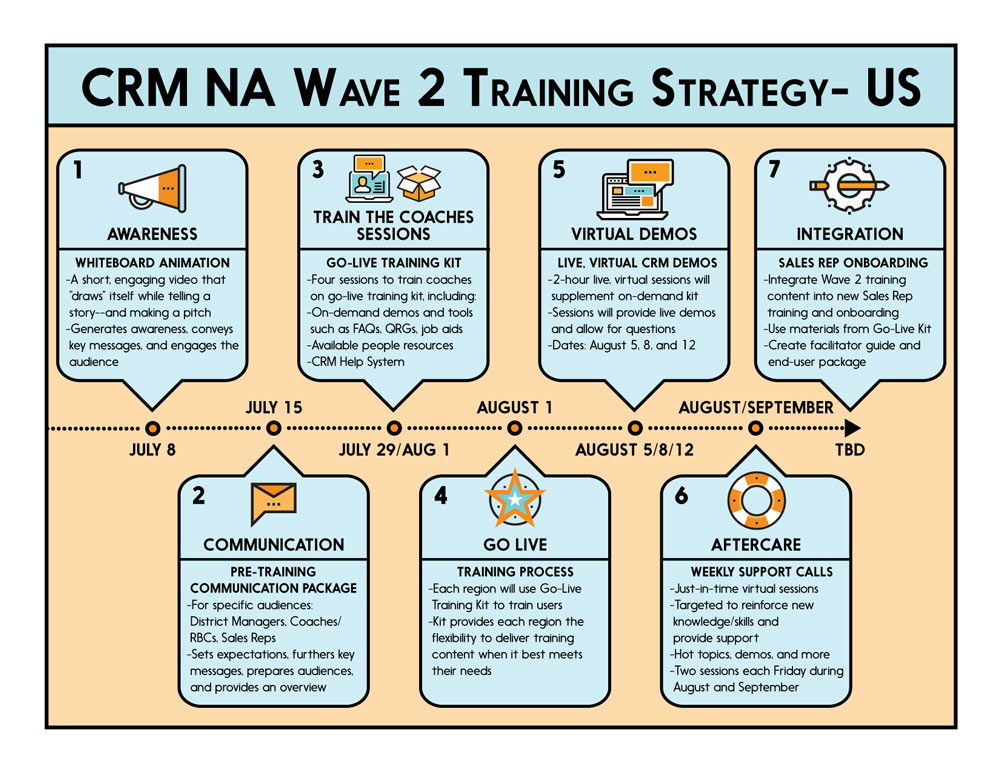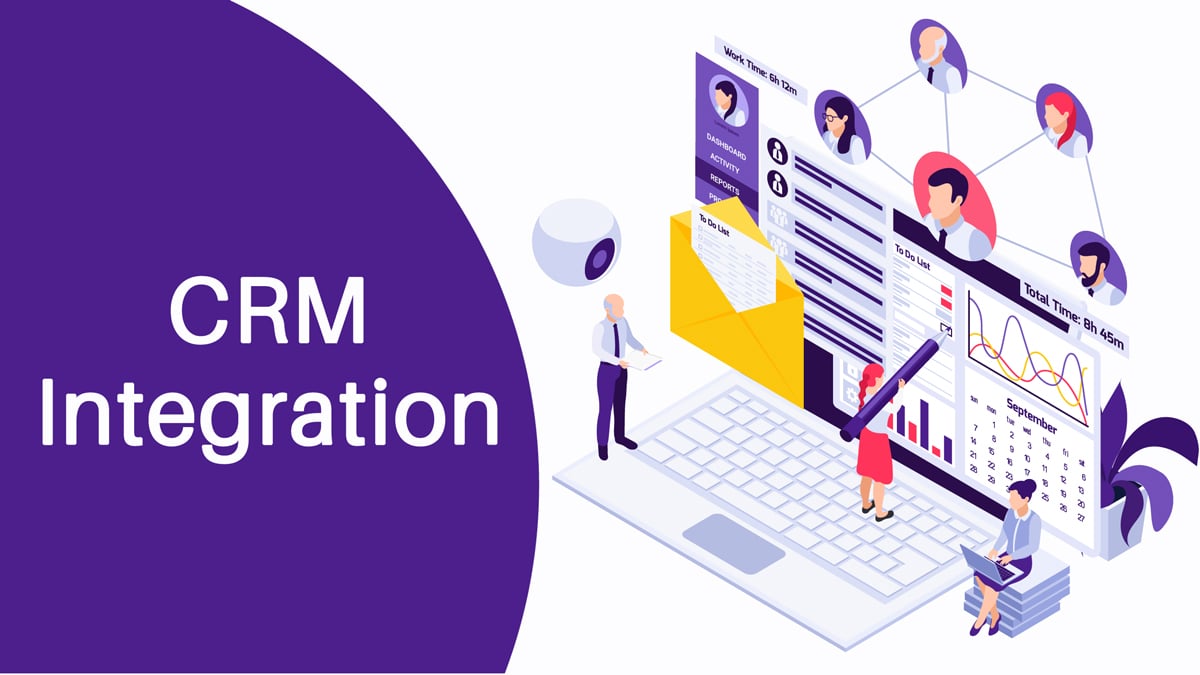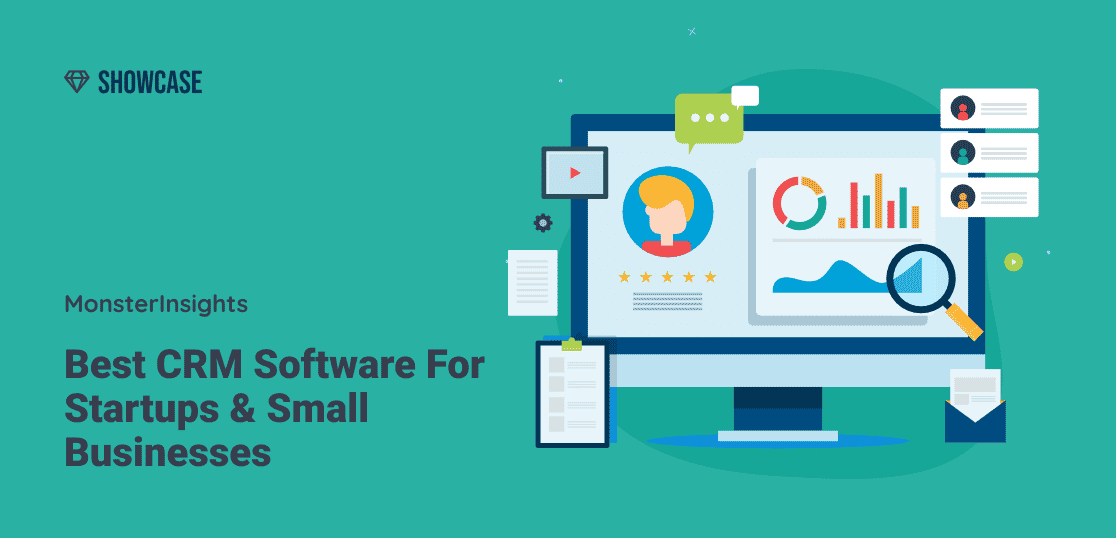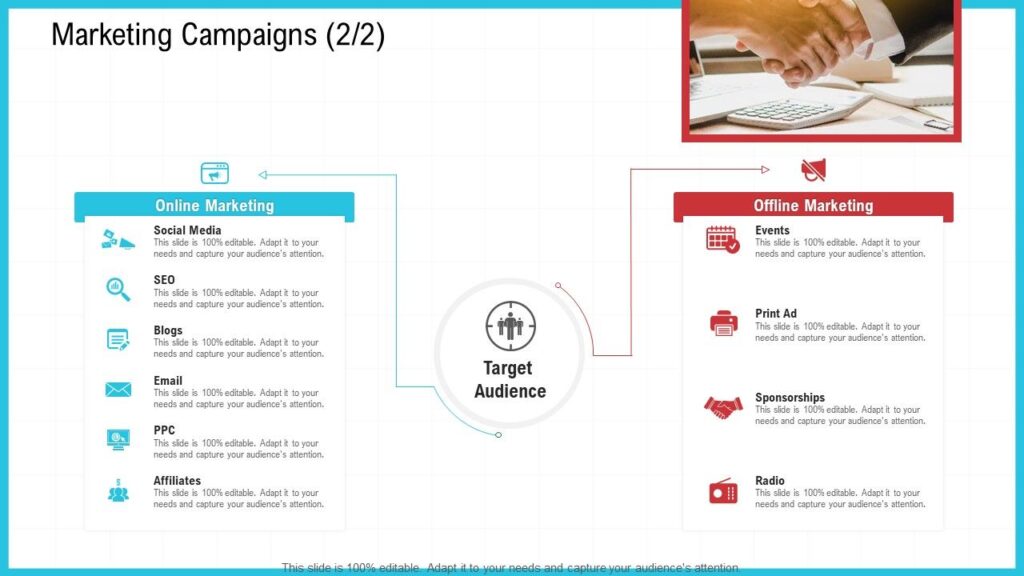
Ignite Growth: 25 CRM Marketing Campaign Ideas to Skyrocket Your Business
In today’s fast-paced business world, staying ahead of the competition requires more than just a great product or service. It demands a deep understanding of your customers and the ability to tailor your marketing efforts to their specific needs and preferences. This is where Customer Relationship Management (CRM) systems come into play, acting as the central nervous system of your marketing operations. With a robust CRM, you can gather, analyze, and leverage customer data to create highly targeted and effective marketing campaigns.
This article delves into the realm of CRM marketing campaigns, providing you with 25 innovative ideas to supercharge your business growth. Whether you’re a seasoned marketer or just starting out, these strategies will equip you with the tools and knowledge to build stronger customer relationships, increase engagement, and drive conversions. Get ready to transform your marketing approach and witness a significant boost in your bottom line!
Understanding the Power of CRM in Marketing
Before we dive into the campaign ideas, let’s briefly touch upon the core benefits of integrating CRM into your marketing strategy. A CRM system is more than just a database; it’s a dynamic platform that allows you to:
- Centralize Customer Data: Consolidate all customer information – contact details, purchase history, interactions, and preferences – in one accessible location.
- Segment Your Audience: Divide your customer base into specific groups based on demographics, behavior, purchase history, and other relevant factors.
- Personalize Your Messaging: Craft tailored marketing messages that resonate with individual customers or specific customer segments.
- Automate Marketing Tasks: Streamline your marketing workflows with automated email campaigns, lead nurturing sequences, and other time-saving features.
- Track and Measure Results: Monitor the performance of your campaigns, analyze key metrics, and gain valuable insights to optimize your strategy.
- Improve Customer Service: Provide exceptional customer service by having instant access to customer information and interaction history.
By harnessing the power of CRM, you can move beyond generic, one-size-fits-all marketing and create experiences that foster loyalty, drive sales, and ultimately, fuel your business’s success.
25 CRM Marketing Campaign Ideas to Implement Now
Now, let’s explore a diverse range of CRM marketing campaign ideas, categorized for easy navigation and implementation. These ideas are designed to be adaptable to various industries and business models. Remember to always tailor your campaigns to your specific target audience and business objectives.
I. Lead Generation Campaigns
Lead generation is the lifeblood of any successful business. CRM can be instrumental in attracting, nurturing, and converting leads into paying customers.
- Targeted Content Offers: Create valuable content, such as ebooks, white papers, or webinars, and offer them in exchange for contact information through landing pages integrated with your CRM. Segment these offers based on customer interests or industry.
- Lead Scoring and Qualification: Implement a lead scoring system within your CRM to identify and prioritize high-potential leads based on their behavior and engagement. This allows your sales team to focus their efforts on the most promising prospects.
- Automated Email Nurturing Sequences: Develop automated email sequences to nurture leads through the sales funnel. These sequences should provide valuable information, address common pain points, and gradually move leads toward a purchase decision.
- Personalized Website Experiences: Use your CRM data to personalize website content and offers for individual visitors. This can include displaying relevant product recommendations, showcasing testimonials from similar customers, or offering exclusive discounts.
- Referral Programs: Encourage existing customers to refer new leads by offering rewards or incentives. Integrate your referral program with your CRM to track referrals, manage rewards, and nurture referred leads.
II. Customer Acquisition Campaigns
Once you’ve generated leads, the next step is to convert them into paying customers. These campaigns focus on driving sales and building brand awareness.
- Welcome Email Series: Create a compelling welcome email series for new subscribers or customers. This series should introduce your brand, highlight your key value propositions, and provide helpful resources.
- Abandoned Cart Recovery: Set up automated emails to target customers who have abandoned their shopping carts. Remind them of the items they left behind and offer incentives, such as free shipping or a discount, to encourage them to complete their purchase.
- Free Trial or Demo Campaigns: Offer free trials or demos of your product or service to potential customers. Use your CRM to track trial sign-ups, send reminder emails, and provide support to help users get the most out of their trial experience.
- Product Launch Campaigns: When launching a new product, use your CRM to target existing customers and leads with pre-launch announcements, exclusive previews, and early bird offers.
- Cross-selling and Upselling Campaigns: Leverage customer purchase history to identify opportunities for cross-selling and upselling. Recommend related products or offer premium upgrades to increase the average order value.
III. Customer Retention Campaigns
Retaining existing customers is often more cost-effective than acquiring new ones. These campaigns focus on building loyalty and encouraging repeat purchases.
- Loyalty Programs: Implement a loyalty program to reward repeat customers with points, discounts, or exclusive benefits. Track customer loyalty points and engagement within your CRM.
- Birthday and Anniversary Emails: Send personalized birthday and anniversary emails to show customers that you care. Offer special discounts or promotions to make these emails even more appealing.
- Product Education and Training: Provide ongoing education and training to help customers get the most out of your products or services. This can include webinars, tutorials, or online courses.
- Surveys and Feedback Requests: Regularly solicit feedback from your customers to understand their needs and identify areas for improvement. Use surveys and feedback forms integrated with your CRM.
- Exclusive Content and Offers: Provide exclusive content, offers, and early access to new products or services to your most loyal customers.
IV. Customer Engagement Campaigns
Keeping your customers engaged and interested in your brand is crucial for long-term success. These campaigns focus on building relationships and fostering a sense of community.
- Segmentation-Based Email Newsletters: Create segmented email newsletters that cater to the specific interests and preferences of your customer base. Share relevant content, product updates, and special offers.
- Event Invitations: Invite customers to attend webinars, workshops, or other events relevant to their interests. Track event registrations and attendance within your CRM.
- Social Media Integration: Integrate your CRM with your social media channels to track customer interactions, respond to inquiries, and monitor brand mentions.
- Personalized Recommendations: Use your CRM data to provide personalized product recommendations based on customer purchase history, browsing behavior, and other relevant factors.
- Contests and Giveaways: Run contests and giveaways to generate excitement and engage your customers. Promote these events through your CRM and social media channels.
V. Reactivation Campaigns
Sometimes, customers become inactive or disengaged. These campaigns aim to re-engage these customers and bring them back into the fold.
- Win-Back Emails: Send targeted emails to inactive customers offering special incentives or reminding them of the value you provide.
- Customer Satisfaction Surveys: Reach out to churned customers to understand why they left and gather feedback. Use this information to improve your products or services and prevent future churn.
- Re-engagement Offers: Offer exclusive discounts or promotions to customers who haven’t made a purchase in a while.
- Personalized Follow-Up Calls: For high-value customers, consider personal follow-up calls to understand their needs and offer assistance.
- Segmented Re-engagement Campaigns: Segment your inactive customers based on their reasons for inactivity and tailor your re-engagement campaigns accordingly.
These ideas provide a solid foundation for your CRM marketing efforts. Remember to adapt and refine these strategies to suit your unique business needs and customer base.
Measuring the Success of Your CRM Marketing Campaigns
Implementing CRM marketing campaigns is just the first step. To truly optimize your efforts, you must track and measure their performance. Here are some key metrics to monitor:
- Conversion Rates: Track the percentage of leads or prospects who convert into paying customers.
- Customer Acquisition Cost (CAC): Calculate the cost of acquiring a new customer.
- Customer Lifetime Value (CLTV): Estimate the total revenue a customer is expected to generate over their relationship with your business.
- Click-Through Rates (CTR): Measure the percentage of recipients who click on links in your emails or other marketing materials.
- Open Rates: Track the percentage of recipients who open your emails.
- Return on Investment (ROI): Calculate the profitability of your marketing campaigns.
- Customer Retention Rate: Measure the percentage of customers who remain loyal to your business over a specific period.
- Customer Satisfaction (CSAT) and Net Promoter Score (NPS): Gauge customer satisfaction and loyalty through surveys and feedback.
By regularly analyzing these metrics, you can identify what’s working, what’s not, and make data-driven decisions to optimize your campaigns for maximum impact. Most CRM systems offer built-in reporting and analytics tools to help you track these metrics.
Tips for Successful CRM Marketing Campaigns
Here are some additional tips to help you maximize the effectiveness of your CRM marketing campaigns:
- Start with a Clear Strategy: Define your goals, target audience, and key performance indicators (KPIs) before launching any campaigns.
- Invest in Data Quality: Ensure that your CRM data is accurate, up-to-date, and complete. Regularly cleanse and validate your data to avoid sending messages to incorrect or outdated contacts.
- Personalize, Personalize, Personalize: Leverage your CRM data to personalize every aspect of your marketing efforts, from email subject lines to website content.
- Automate Where Possible: Utilize automation features to streamline your marketing workflows, save time, and improve efficiency.
- Test and Optimize: Continuously test different variations of your campaigns, such as subject lines, email content, and calls to action, to identify what resonates best with your audience.
- Integrate with Other Tools: Integrate your CRM with other marketing tools, such as email marketing platforms, social media management tools, and e-commerce platforms, to create a seamless marketing ecosystem.
- Provide Value: Always provide value to your customers through your marketing efforts. Focus on offering helpful information, exclusive deals, and exceptional customer service.
- Stay Compliant: Ensure that your marketing practices comply with all relevant data privacy regulations, such as GDPR and CCPA.
- Train Your Team: Provide adequate training to your marketing and sales teams on how to use the CRM and implement the marketing campaigns.
- Stay Agile: Be prepared to adapt your campaigns based on changing customer behavior and market trends.
Choosing the Right CRM System
The success of your CRM marketing campaigns hinges on selecting the right CRM system for your business. Consider the following factors when making your decision:
- Features: Ensure that the CRM offers the features you need, such as contact management, lead scoring, email marketing automation, and reporting and analytics.
- Scalability: Choose a CRM that can scale with your business as it grows.
- Integration: Look for a CRM that integrates seamlessly with your existing tools and platforms.
- User-Friendliness: Select a CRM that is easy to use and navigate.
- Pricing: Consider the pricing structure and ensure it aligns with your budget.
- Support: Choose a CRM provider that offers excellent customer support.
Some popular CRM systems include:
- Salesforce: A comprehensive CRM platform suitable for businesses of all sizes.
- HubSpot CRM: A free CRM with powerful marketing automation features.
- Zoho CRM: A versatile CRM with a wide range of features and integrations.
- Microsoft Dynamics 365: A cloud-based CRM solution that integrates with other Microsoft products.
- Pipedrive: A sales-focused CRM designed for small businesses.
Research different CRM systems and compare their features, pricing, and reviews before making a final decision. Consider a free trial to test the system and see if it’s the right fit for your business.
Conclusion: The Future of CRM Marketing
CRM marketing is constantly evolving, driven by advancements in technology and changing customer expectations. As businesses strive to build stronger customer relationships and deliver personalized experiences, CRM will continue to play a pivotal role. By embracing the ideas and strategies outlined in this article, you can position your business for success in the dynamic world of CRM marketing.
The key to success lies in a customer-centric approach. By understanding your customers’ needs, preferences, and behaviors, you can create marketing campaigns that resonate with them, drive engagement, and ultimately, boost your bottom line. Embrace data-driven decision-making, personalize your messaging, and continuously test and optimize your campaigns to achieve the best results. The future of marketing is personalized, automated, and customer-centric, and CRM is the key to unlocking its potential.
So, take action today. Implement these CRM marketing campaign ideas, analyze your results, and continuously refine your strategy to stay ahead of the curve and achieve sustainable growth.

